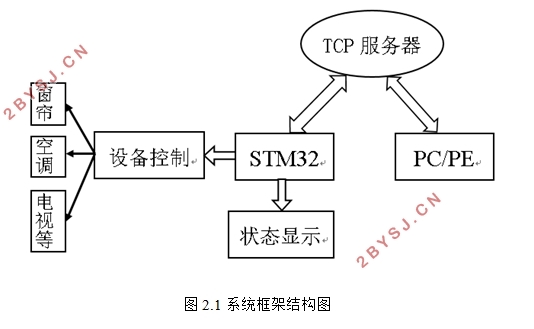智能家居控制系统的设计
无需注册登录,支付后按照提示操作即可获取该资料.
智能家居控制系统的设计(任务书,开题报告,论文13000字)
摘 要
随着生活水平的提高,人们越来越注重家居生活的便捷性、智能性。这也让智能家居成为了家居发展的一种趋势。本文设计了一套基于STM32单片机的智能家居控制系统,可对家居设备以及TCP服务器进行远程控制,实现的主要功能有:家居照明控制、智能家电控制、家居温度调节、窗帘控制。
论文首先分析了系统需实现的功能,并设计了智能家居控制系统总体框架结构。然后根据设计需求,选择了主控单元芯片,确定各个功能模块的型号,设计了系统总体的硬件原理图。在此基础上,设计相应的驱动程序,完成系统总体软件设计。最后模拟用户正常使用智能家居系统的流程,进行系统的整体测试。经测试,本系统基本达到设计要求。
关键词:智能家居;STM32;驱动程序
Abstract
With the improvement of living standard, people pay more and more attention to the convenience and intelligence of home life.This also makes smarthome become a kind of development trend. A smart home control system is designedbased on STM32 single-chip microcomputerin this paper, by which home equipment and remote control of TCP servercan be controlled. Some functions are realized, such as home lighting control, smart home appliance control, home temperature adjustment, curtain control.
First, the functions of the system are analyzed and the overall framework of the system is designed. Then the main control unit chip and the model of each functional module are determined according to the design requirements.The hardware system design is carried out. Based on it, the overall software and the corresponding driver are completed. At last the overall test of the system is carried out by simulating the smart home systemused normally.It verified that the system can reach the design requirements.
Key Words:Smart Home; STM32; Driver

目录
第1章绪论 1
1.1 研究背景、意义 1
1.2 国内外研究现状 1
1.2.1 国外研究现状 2
1.2.2 国内研究现状 2
1.3 研究的基本内容、目标 3
1.4 论文结构 3
第2章系统总体设计 4
2.1 系统需求分析 4
2.2 系统框架结构 4
2.3 相关技术介绍 5
2.3.1 SPI串口通信 5
2.3.2 红外遥控技术 5
2.3.3 TCP协议 6
2.4 本章小结 6
第3章系统硬件设计 8
3.1 STM32单片机及外围电路 8
3.1.1 主控单元 8
3.1.2 系统复位电路 9
3.1.3 调试下载电路 9
3.2 功能模块 10
3.2.1 OLED显示模块 10
3.2.2 红外遥控模块 11
3.2.3 继电器控制模块 12
3.2.4 电机驱动模块 13
3.3 WIFI通信模块 14
3.4 本章小结 15
第4章系统程序设计 16
4.1 开发工具平台 16
4.2 各模块程序设计 16
4.2.1 OLED显示程序设计 16
4.2.2 红外遥控程序 16
4.2.3 WIFI通信程序 17
4.3 本章小结 18
第5章系统测试 19
5.1 各模块功能测试 19
5.1.1 OLED显示测试 19
5.1.2 控制信号发送测试 20
5.1.3 WIFI通信模块测试 21
5.2 本章小结 21
第6章总结与展望 22
6.1 总结 22
6.2 展望 22
参考文献 23
致谢 24
